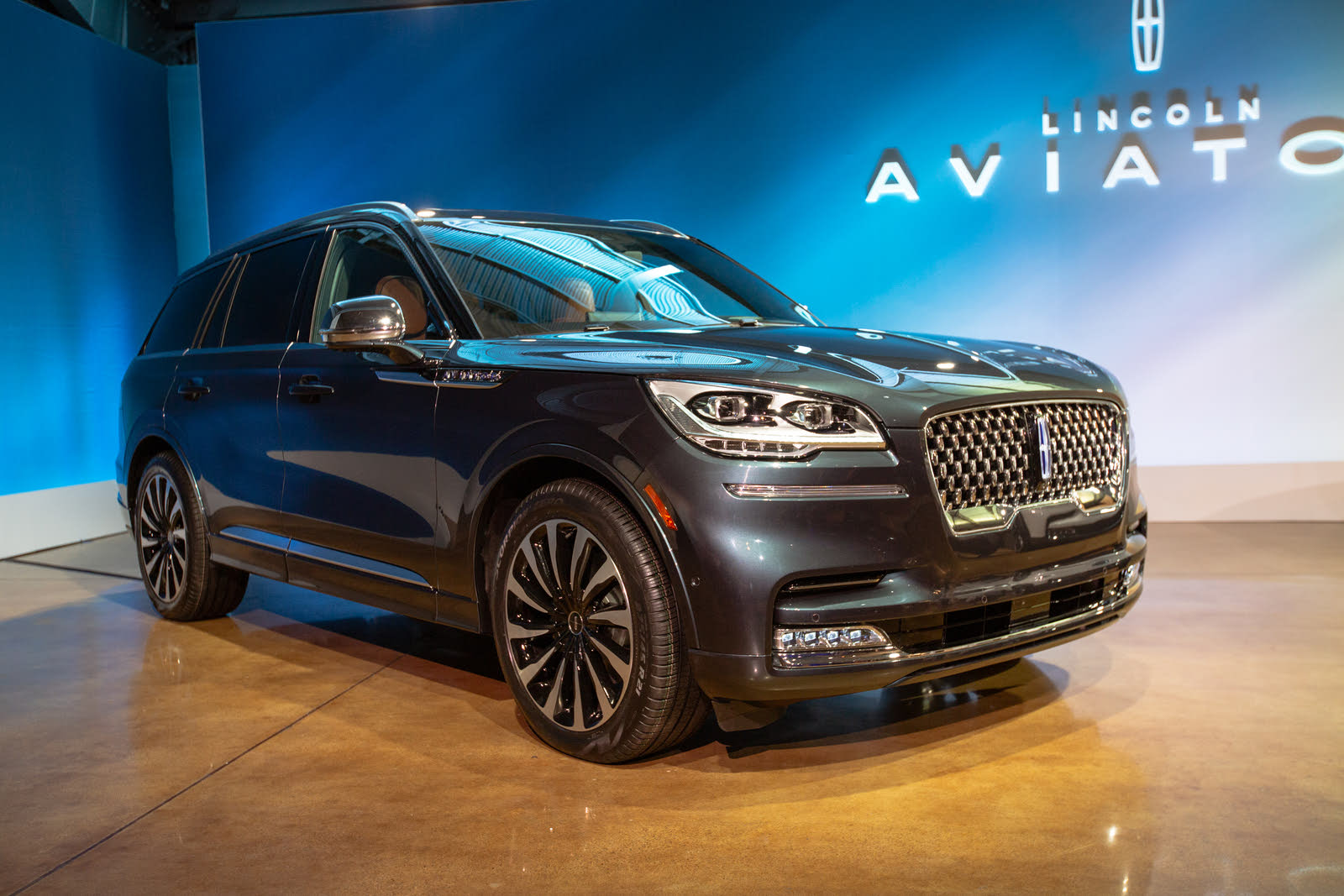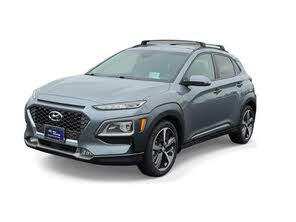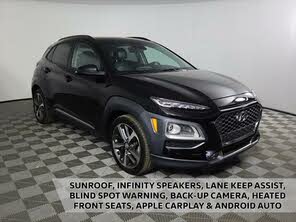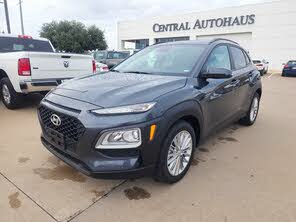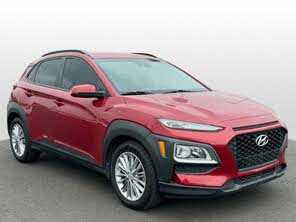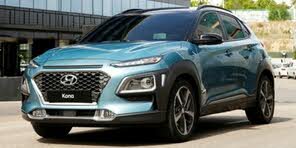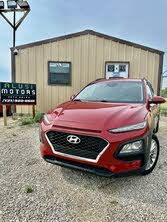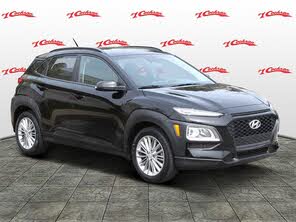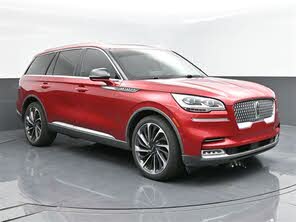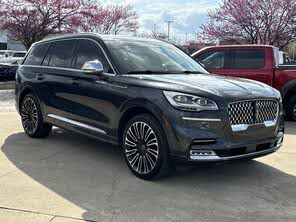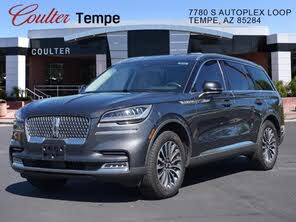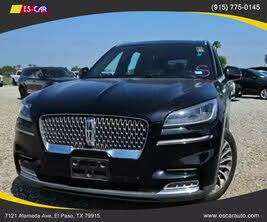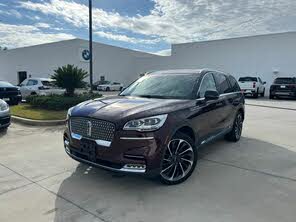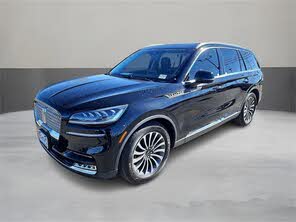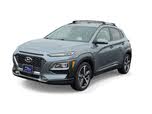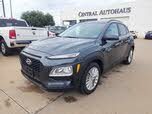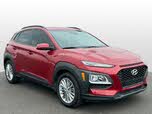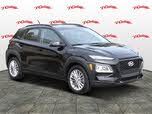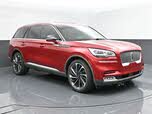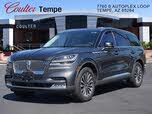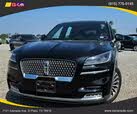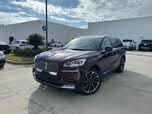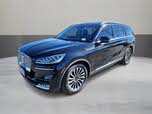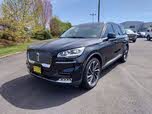2020 Lincoln Aviator vs 2021 Hyundai Kona
Overview | |
MSRP$51,100 | MSRP$20,500 |
Average price$39,781 | Average price$19,511 |
Listings593 | Listings1761 |
Ratings & Reviews | |
User Reviews | User Reviews |
Expert reviews8.2 out of 10 | Expert reviews7.2 out of 10 |
Pros
| Pros
|
2020 Lincoln Aviator Reviews SummaryThe heyday for Lincoln was more than a half-century ago. Those postwar years of prosperity and optimism were the perfect time for cars like the Continental and others. They delivered comfort and luxury, wrapped in midcentury modern styling. Even as recently as the 1990s, Lincoln was still a popular brand, riding the SUV craze with its Navigator. But after the turn of the century, Lincoln lost its ability to create new designs and looked inward and backward. Sure, retro-themed cars like the redesigned Mustang, PT Cruiser, and Chevy HHR had turned some heads, but none of those came from luxury brands. The BMWs and Mercedes of the world were all looking forward and pushing the envelope for contemporary automotive design. Meanwhile, Lincoln offered the MKX, which was based on the Ford Edge and featured ’66 Continental styling. Neat in a vacuum, but off-base compared to the modern luxury market. This experimental phase with various retro looks coincided with the move to the MK-# alphabet-soup naming convention and big improvements in the Ford lineup, where top-end trims of the Fusion overlapped with an entry-level trim of the MKZ. The combination left Lincoln a confusing, anonymous afterthought in the modern luxury game. But Lincoln is finally ready to change all that. It has a new cohesive design language, its focus is once again on luxury, and the three-letter naming convention that never meant anything to anyone other than Lincoln marketers is gone. The brand led with the 2017 Continental and 2018 Navigator, which are each impressive in their own right. But the company's lineup is growing and now includes the all-new 2020 Lincoln Aviator. Named after a luxury variant of the 2002-2005 Ford Explorer, this new Aviator is also based on the contemporary Explorer platform, but it's a luxury vehicle in its own right. Much of the success of the Lincoln brand may hinge on this midsize, 3-row luxury SUV, so you need to consider its competition, such as the Audi Q7, Infiniti QX60, and all-new Cadillac XT6. Read on to learn if Lincoln’s take on luxury will stand out in a crowded competitive field. | |
2021 Hyundai Kona Reviews SummaryAfter three years on the market, the Hyundai Kona continues to wow with great features, strong styling, and decent specs. The 2021 model year brings subtle changes to the Kona lineup, including new colors, a new Night Edition with Rays semi-gloss black 18-inch wheels, and gloss black exterior and interior accents. Hyundai offers the Kona in several trims: SE, SEL, SEL Plus, Night Edition, Limited, and Ultimate. A Hyundai Kona Electric model is available as well, but we'll cover that in a separate overview. A high-performance Kona N will be available for the 2022 model year. The Hyundai Kona competes with subcompact SUVs that include the Kia Soul, Volkswagen Taos, Mazda CX-30, Subaru Crosstrek, Nissan Kicks, Hyundai Venue, and Toyota C-HR. Given its size and price, buyers may also cross-shop the larger Hyundai Tucson. New car buyers have many other choices, then, but the Kona still stands out as a value-forward crossover with a long warranty and plenty of standard features. | |
No video found | |
Popular Features & Specs | |
Engine3.0L 400 hp V6 | Engine2.0L 147 hp I4 |
Drive TrainRWD | Drive TrainFWD |
Seating Capacity7 | Seating Capacity5 |
Horsepower | Horsepower147 hp @ 6200 rpm |
MPG City18 | MPG City27 |
MPG Highway26 | MPG Highway33 |
Engine | |
Engine Name3.0L 400 hp V6 | Engine Name2.0L 147 hp I4 |
Torque | Torque132 lb-ft @ 4500 rpm |
Horsepower | Horsepower147 hp @ 6200 rpm |
DrivetrainRWD | DrivetrainFWD |
Fuel Economy | |
MPG City18 | MPG City27 |
MPG Highway26 | MPG Highway33 |
Interior | |
Seating Capacity7 | Seating Capacity5 |
Safety | |
Front Crash Overall5 | Front Crash Overall5 |
Side Crash Overall5 | Side Crash Overall5 |
Dimensions & Capacity | |
Cargo Space18.3 cu ft | Cargo Space19.2 cu ft |
Curb Weight4764 lbs | Curb Weight2890 lbs |
Height69.8 in | Height61.0 in |
Length199.3 in | Length164.0 in |
Width89.9 in | Width70.9 in |
Wheelbase119.1 in | Wheelbase102.4 in |
Maximum Payload | Maximum Payload1089 lbs |
Number of doors4 | Number of doors4 |
Overview | ||
MSRP | $51,100 | $20,500 |
Average price | $39,781 | $19,511 |
Listings | ||
Ratings & Reviews | ||
User reviews | 4.5 | 4.6 |
Expert reviews | 8.2 out of 10Read full review | 7.2 out of 10Read full review |
Pros & cons | Pros
| Pros
|
Summary | The heyday for Lincoln was more than a half-century ago. Those postwar years of prosperity and optimism were the perfect time for cars like the Continental and others. They delivered comfort and luxury, wrapped in midcentury modern styling. Even as recently as the 1990s, Lincoln was still a popular brand, riding the SUV craze with its Navigator. But after the turn of the century, Lincoln lost its ability to create new designs and looked inward and backward. Sure, retro-themed cars like the redesigned Mustang, PT Cruiser, and Chevy HHR had turned some heads, but none of those came from luxury brands. The BMWs and Mercedes of the world were all looking forward and pushing the envelope for contemporary automotive design. Meanwhile, Lincoln offered the MKX, which was based on the Ford Edge and featured ’66 Continental styling. Neat in a vacuum, but off-base compared to the modern luxury market. This experimental phase with various retro looks coincided with the move to the MK-# alphabet-soup naming convention and big improvements in the Ford lineup, where top-end trims of the Fusion overlapped with an entry-level trim of the MKZ. The combination left Lincoln a confusing, anonymous afterthought in the modern luxury game. But Lincoln is finally ready to change all that. It has a new cohesive design language, its focus is once again on luxury, and the three-letter naming convention that never meant anything to anyone other than Lincoln marketers is gone. The brand led with the 2017 Continental and 2018 Navigator, which are each impressive in their own right. But the company's lineup is growing and now includes the all-new 2020 Lincoln Aviator. Named after a luxury variant of the 2002-2005 Ford Explorer, this new Aviator is also based on the contemporary Explorer platform, but it's a luxury vehicle in its own right. Much of the success of the Lincoln brand may hinge on this midsize, 3-row luxury SUV, so you need to consider its competition, such as the Audi Q7, Infiniti QX60, and all-new Cadillac XT6. Read on to learn if Lincoln’s take on luxury will stand out in a crowded competitive field. | After three years on the market, the Hyundai Kona continues to wow with great features, strong styling, and decent specs. The 2021 model year brings subtle changes to the Kona lineup, including new colors, a new Night Edition with Rays semi-gloss black 18-inch wheels, and gloss black exterior and interior accents. Hyundai offers the Kona in several trims: SE, SEL, SEL Plus, Night Edition, Limited, and Ultimate. A Hyundai Kona Electric model is available as well, but we'll cover that in a separate overview. A high-performance Kona N will be available for the 2022 model year. The Hyundai Kona competes with subcompact SUVs that include the Kia Soul, Volkswagen Taos, Mazda CX-30, Subaru Crosstrek, Nissan Kicks, Hyundai Venue, and Toyota C-HR. Given its size and price, buyers may also cross-shop the larger Hyundai Tucson. New car buyers have many other choices, then, but the Kona still stands out as a value-forward crossover with a long warranty and plenty of standard features. |
Video | No video found | |
Popular Features & Specs | ||
Engine | 3.0L 400 hp V6 | 2.0L 147 hp I4 |
Drive Train | RWD | FWD |
Seating Capacity | 7 | 5 |
Horsepower | 147 hp @ 6200 rpm | |
MPG City | 18 | 27 |
MPG Highway | 26 | 33 |
Engine | ||
Engine Name | 3.0L 400 hp V6 | 2.0L 147 hp I4 |
Torque | 132 lb-ft @ 4500 rpm | |
Horsepower | 147 hp @ 6200 rpm | |
Drivetrain | RWD | FWD |
Fuel Economy | ||
MPG City | 18 | 27 |
MPG Highway | 26 | 33 |
Interior | ||
Seating Capacity | 7 | 5 |
Safety | ||
Front Crash Overall | 5 | 5 |
Side Crash Overall | 5 | 5 |
Dimensions & Capacity | ||
Cargo Space | 18.3 cu ft | 19.2 cu ft |
Curb Weight | 4764 lbs | 2890 lbs |
Height | 69.8 in | 61.0 in |
Length | 199.3 in | 164.0 in |
Width | 89.9 in | 70.9 in |
Wheelbase | 119.1 in | 102.4 in |
Maximum Payload | 1089 lbs | |
Number of doors | 4 | 4 |

By: CarGurus + AI
This car comparison has been created with using generative AI. It is based entirely on CarGurus expert review content, ratings and data, and leverages our extensive library of hands-on product tests to create thousands of unique comparisons to help shoppers choose the right car.
